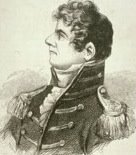Report on Episcopal Church response to Windsor Process is released
At their meeting in London in March 2006, the Joint Standing Committee of the Primates and the Anglican Consultative Council nominated four of its members to assist the Archbishop of Canterbury and the Secretary General of the Anglican Communion in discerning the response of the Anglican Communion to the decisions of the 75th General Convention of the Episcopal Church. Some of these decisions related to requests made of the Episcopal Church in the Primates' Statement of February 2005 at Dromantine, which incorporated the Primates' response to the recommendations of the Windsor Report. The group appointed met in London in September 2006.
The members of the group are:
The Archbishop of Canterbury
The Archbishop of Central Africa
The Archbishop of Wales
Chancellor Philippa Amable, Province of West Africa
Canon Elizabeth Paver, Church of England
The Secretary-General
The group released its report today at a press briefing in Tanzania. The primates are in receipt of the report.
Though it doesn't say this specifically, the report makes plain its belief that The Episcopal Church is committed to the Anglican Communion and that it has done its best to maintain the highest degree of communion possible, even though some of its approaches to ministry and Biblical interpretations differ from other national churches in the Communion.
The schismatics within the Episcopal Church and their allies, have been pinning their hopes for action against the Episcopal Church, on a statement from this working group that the Episcopal Church's response to Windsor, is insufficient.
They will be disappointed, because the group finds that the Episcopal Church's response "has been sufficient to meet the request of the primates" and the Windsor Report itself.
This is a major blow to the schismatics' attempt to divide the Episcopal Church and the Communion.
Here is the relevant text from the report, with emphasis:
It is clear to this group that in the period following the Dromantine meeting, the Episcopal Church took the Windsor Report and the recommendations adopted by the Primates extremely seriously, establishing a Special Commission to work on its response, dedicating a particular legislative Committee (Special Legislative Committee 26) at the 75th General Convention to carry forward business associated with the Windsor Report, and devoting a lot of time to considering this work.
....
The response of the 75th General Convention to the Windsor Report as a whole in its resolutions was positive.
...
Finally, we must turn to the issue of the statement of regret requested by the Windsor Report, and affirmed by the Primates at Dromantine. It is to be noted that the Windsor Report did not request "repentance", although this request has been voiced in some quarters in the Communion. Equally, the Windsor Report went beyond asking for an acknowledgement of the hurt and offence caused by the implications of the decision to consecrate a bishop living in an openly acknowledged sexual relationship outside marriage in contradiction to the teaching upheld in Lambeth Resolution 1.10. The report argued that there had been a breach of the proper constraints of the bonds of affection, and it was this breach for which regret ought to be expressed.
- In the event, the relevant resolution, approved by General Convention is as follows:
Resolved, That the 75th General Convention of The Episcopal Church, mindful of "the repentance, forgiveness, and reconciliation enjoined on us by Christ" (Windsor Report, paragraph 134), express its regret for straining the bonds of affection in the events surrounding the General Convention of 2003 and the consequences which followed; offer its sincerest apology to those within our Anglican Communion who are offended by our failure to accord sufficient importance to the impact of our actions on our church and other parts of the Communion; and ask forgiveness as we seek to live into deeper levels of communion one with another.
- A number of things have to be noted about this resolution. In the first place, General Convention voted down a proposal to adopt the precise wording of the Windsor Report, arguing that it was impossible to know what "the proper constraints of the bonds of affection" were. The group has some sympathy for this view. Instead, however, Convention expressed regret for "straining the bonds of affection", and offered its apology "to those offended by our failure to accord sufficient importance to the impact of our actions on our church and other parts of the Communion". It goes on to "ask forgiveness".
- The group was unsure how these words should be understood. On the one hand, there does not seem to be any admission of the fact that the action of consenting to the particular election at the centre of this dispute was in itself blameworthy. On the other, there is the use of the strong language of "apology" and the request for "forgiveness". These words are not lightly offered, and should not be lightly received. Taken with the apparent promise not to repeat the offence (Resolution B033 discussed above) we believe that the expression of regret is sufficient to meet the request of the primates.
The report also says this, possibly a reference to episcopal incursions on North America:
We recognise that the Windsor Report was addressed to the whole of the Anglican Communion. This report has been concerned with the response by the Episcopal Church to that Report. We understand that the Anglican Church of Canada is in the process of preparing its response. We have to express our concern that other recommendations of the Windsor Report, addressed to other parts of the Communion, appear to have been ignored so far.The full report is all here.
Jim Naughton offers some thoughts about this at Daily Episcopalian, Father Jake at his place. At Preludium Mark Harris says he's pleased the Archbishop's advisory group recognized the hard work that went into the Episcopal Church's response.


0 Comments:
Post a Comment
<< Home